Make Mine Raw #1
Welcome to the first edition of Make Mine Raw, the raw milk lover's newsletter from Raw Milk Producers Association.
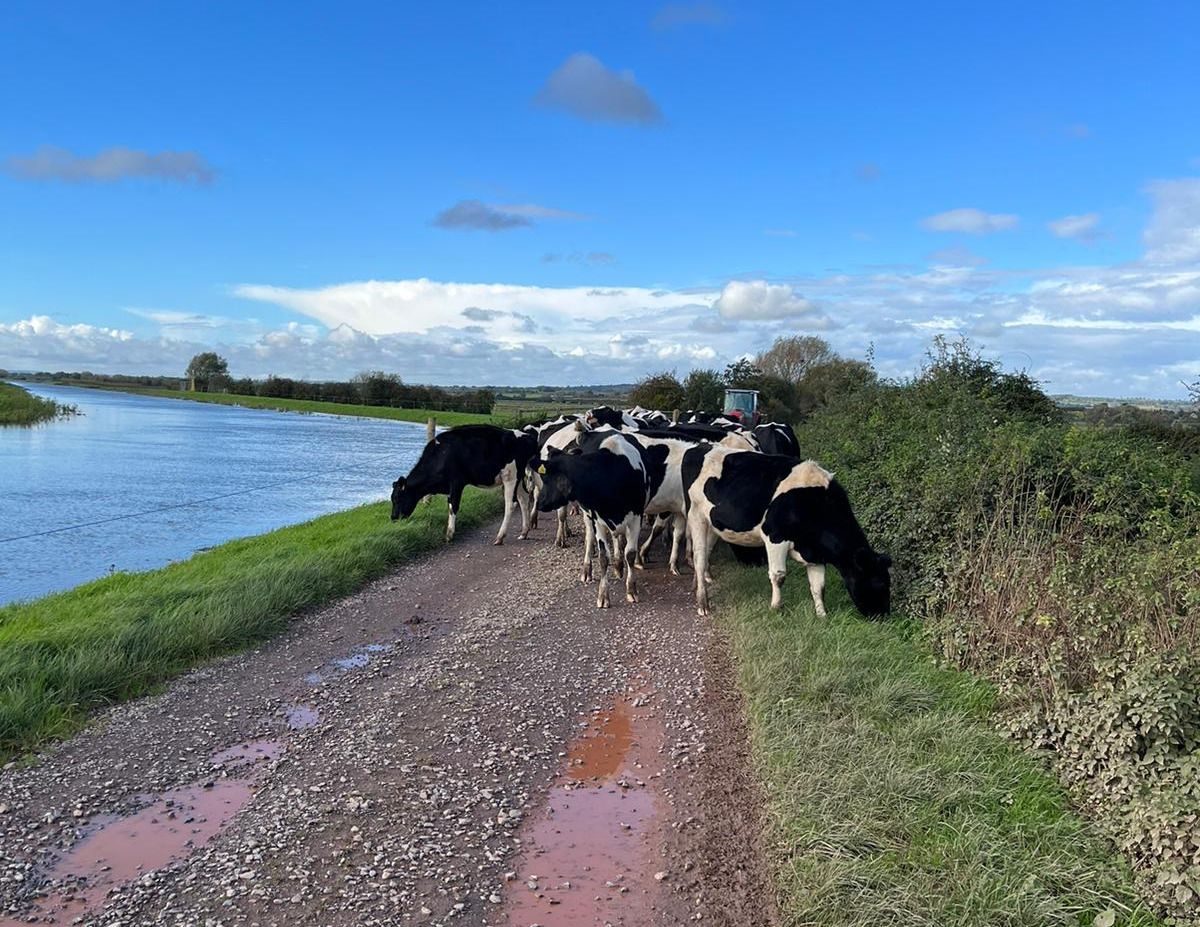
Welcome to the first edition of Make Mine Raw, the raw milk lover's newsletter from Raw Milk Producers Association.
Last month we had our association's AGM and annual farm visit in Somerset. These are a great opportunity to meet up and share ideas and challenges with others who are passionate about producing raw milk.
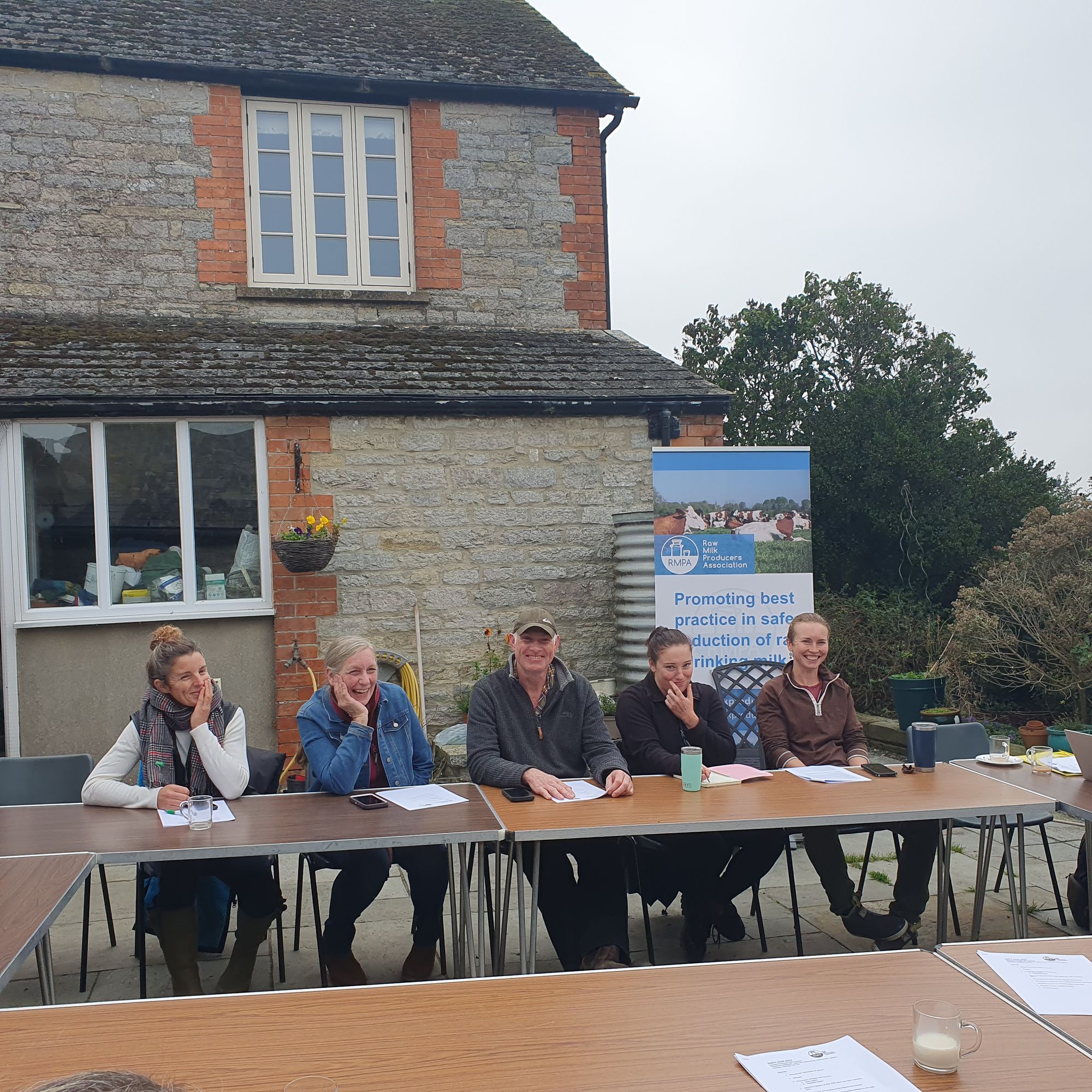
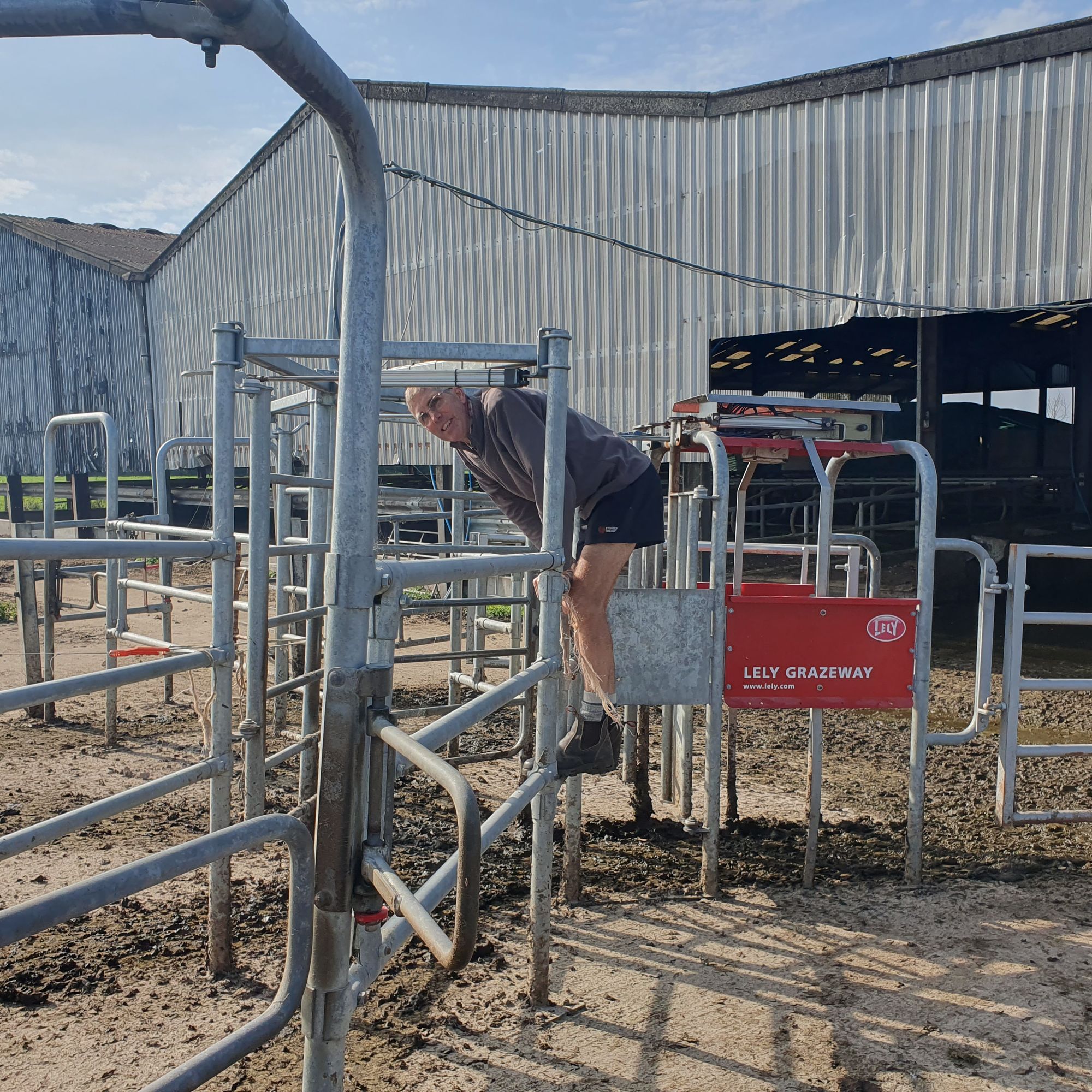
The very serious business of the AGM and Dave demonstrating Hurdlebrook's automatic gate system.
Our hosts, Dave and Rosie, gave us a tour of Hurdlebrook Farm, where they have around 200 guernsey cows and process their own milk. It was fascinating to see their 3 robotic milkers that work with programmable gates to let cows out to strip graze in one of three paddocks after milking. This is a system that had already been used in Ireland but Dave and Rosie were the first to trial it in England. We tried their range of thick and creamy yoghurts and the cheese made locally with their milk.
Next, we made the short journey to visit Jon at West Country Water Buffalo, to see his milking parlour and mozzarella-making facilities. Like goats milk, buffalo milk is naturally homogenised and therefore challenging to separate, and yet, we got to taste some buffalo butter, as well as their mozzarella and ice cream. He is also trialing other cheeses so exciting things are afoot. The buffalo were curious to meet us, and Jon spoke about the challenges and joys of milking buffalo, which they do once a day.
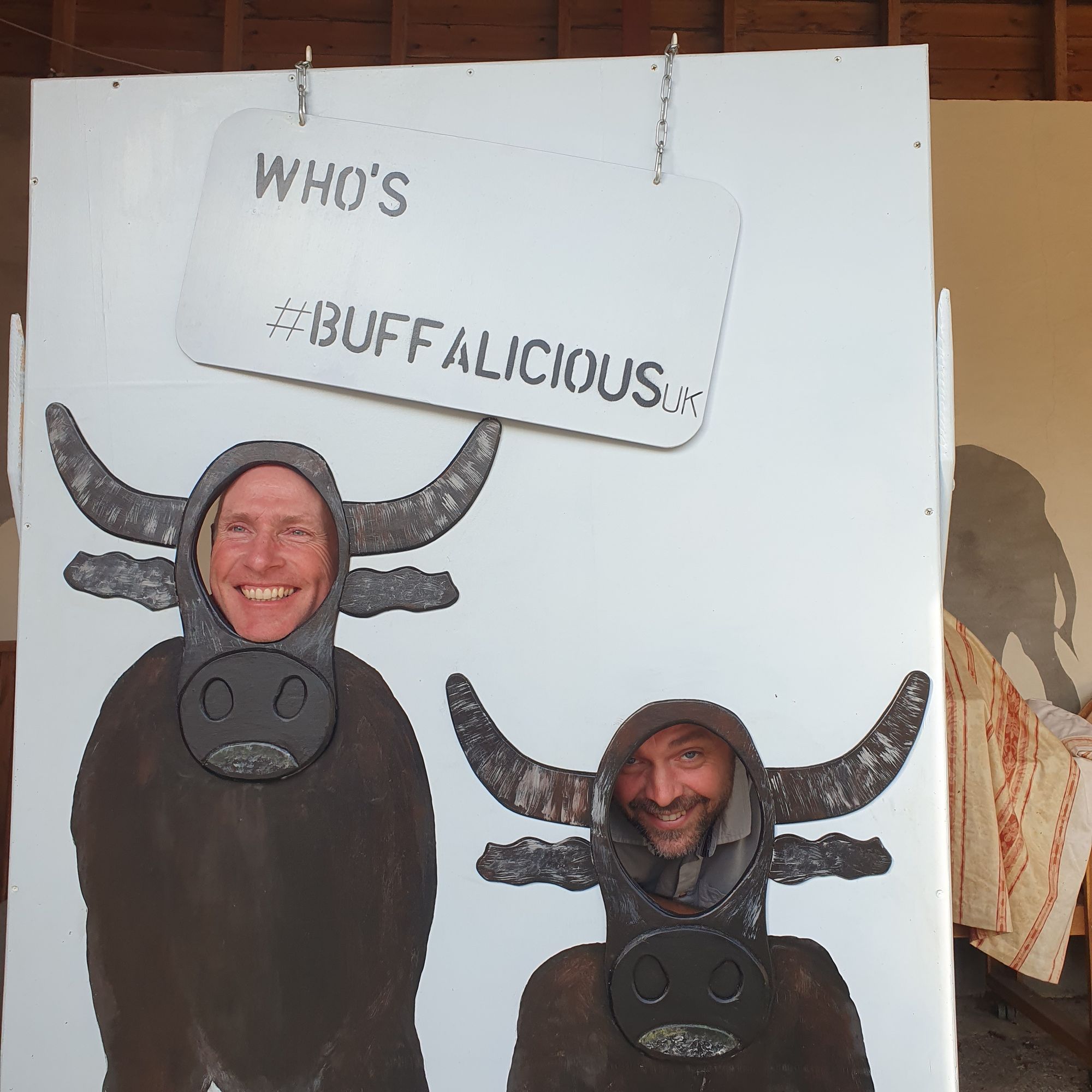
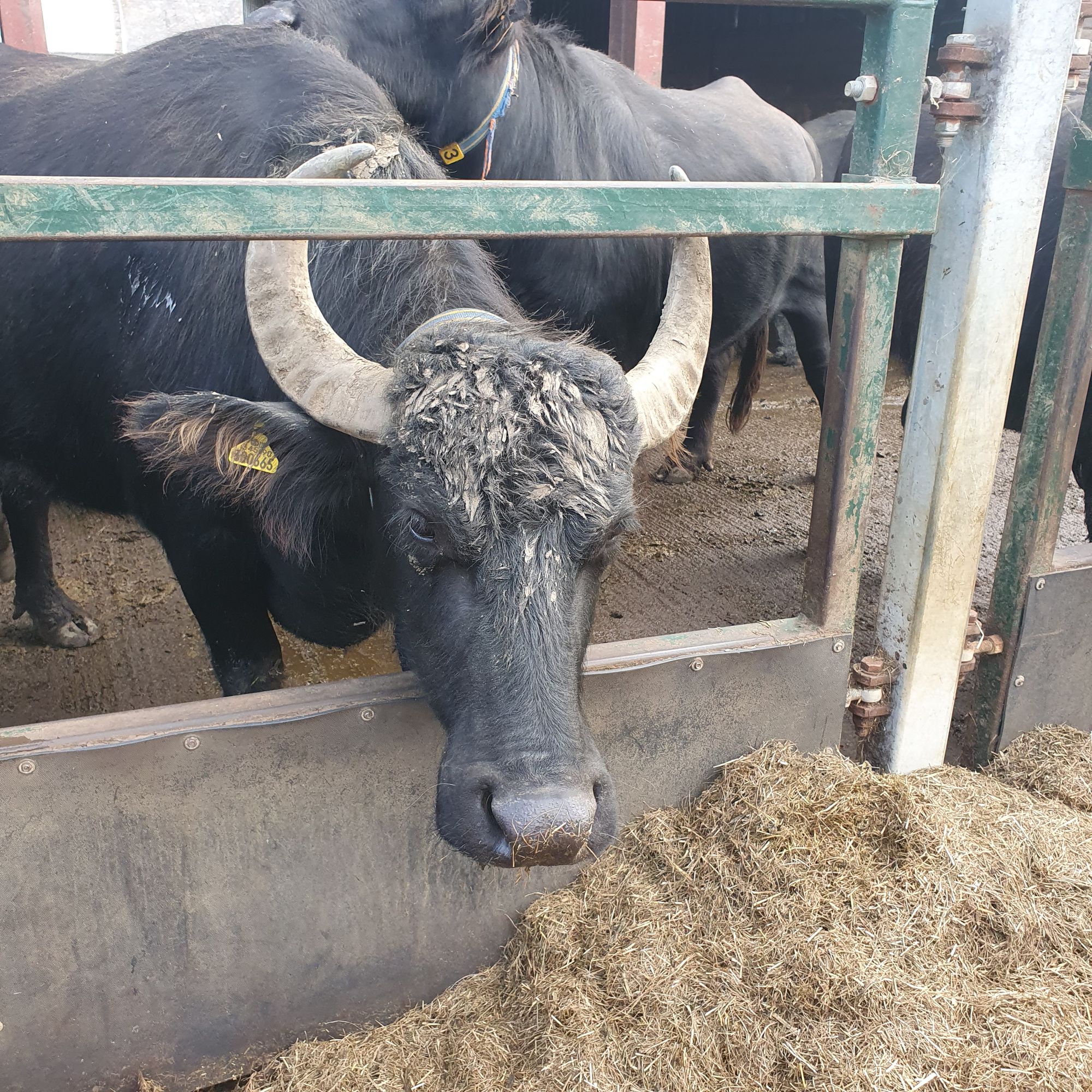
RMPA committee members Jon and Jonny channel their inner buffalo and the buffalicious ladies.
Each season presents its own challenges on farms, and Autumn arrived suddenly and dramatically this year. Recent storms and flooding necessitated rapid action, from clearing fallen trees or creating alternative access for customers to bringing animals in to the safety of the barns and even rescuing animals stranded on islands of high ground as their pasture of only hours before became completely submerged.

It might feel too early to talk about Christmas, but for many farms that also process their milk, production has already ramped up for our artisan cheese boards, delicious seasonal flavours are being taste-tested and stores are full to bursting with packaging. Many farms are taking orders already for popular festive produce and organising events or attending Christmas markets. We've listed a few below, but it's worth checking at your local raw milk farm.
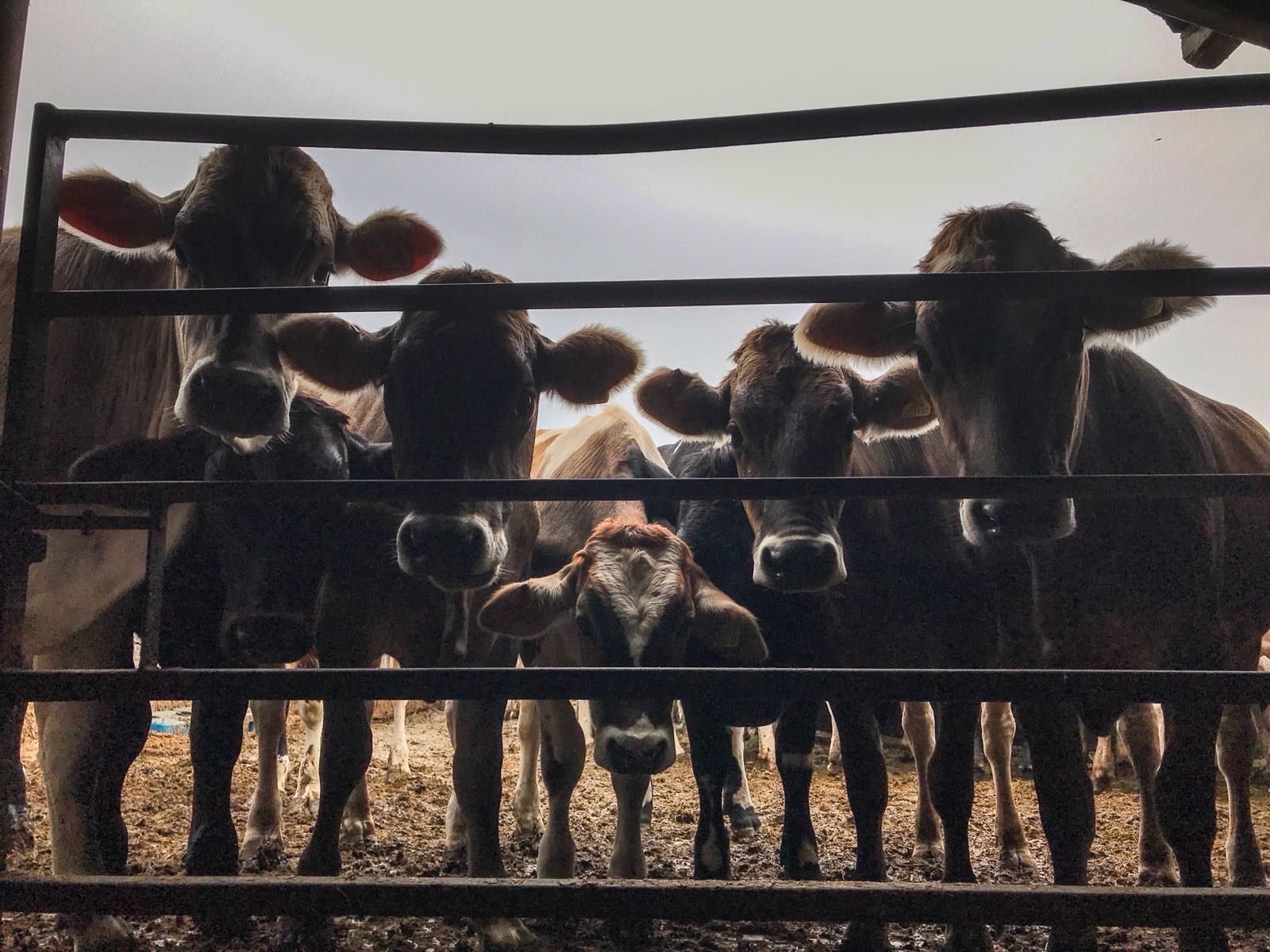
Featured Farm
Dora's Dairy, North Wiltshire
Farm Facts
- Farm Type: dairy, beef, laying hens, pigs
- Farm size (acres): 90 acres owned 65 rented
- Employees: 2 full-time, 3 part-time
- Soil: brash running to clay
- Key Farming Practices: cow-calf pairs, rotational grazing, once-a-day milking, closed herd, calving blocks in Spring (dairy) and autumn (beef)
- Breed: Brown Swiss, Jersey, Flechvieh, Guernsey, Swedish Red & Holstein
- No in the milking herd: 55
- Dairy products sold: raw milk, yoghurt, cream, milkshakes, pasteurised milk & Ice cream

We are Jon and Sarah and we took over running the farm in 2012 from Jon’s parents. Historically it was farmed as a flying herd of 50-60 cows; all calves were sold at 6 weeks to market and milk sold to Cadbury but we have now closed herd for 8 years.
Jon has always been involved with the farm, even whilst working in an office for an agricultural feed merchant for 2 years. He has had numerous businesses over the period including being the first independent dairy consultant using the Reading University-developed DAISY computer system in 1993 (bought by NMR). He also trained vets and farmers on how to use the program all over the South West and Wales. In 1994 he started a worm farm and by 2004 was the second largest importer (Holland and Canada) of fishing and composting worms in the UK. He also has another business supplying bespoke dog name tags started in 2003: Indigo Collartags. Sarah was brought up on a small holding in the same village as the farm with Dorset Horn sheep. She spent the majority of her working life in the corporate world before finding a much more rewarding life by becoming a firefighter. She swapped the red fire truck for a Massey Ferguson in 2012 when she came to the farm.
Quarry Farm was bought in 1950. Sitting between Swindon and Cirencester, the soil type is mainly brash and dries out ridiculously quickly during the summer (2022 being the worst in my memory)! Jon realised his dream of selling the raw milk superfood in 2018. Having always had extremely clean milk with both SCC and Bactoscans being important drivers in the system, no major changes were necessary to obtain the licence.
We are grass-fed dairy (a small amount, 200g, of sugar beet is given as parlour encouragement). All compound feeds were stopped in March 2022. We milk once a day in a 1950 mobile (now static) milking bail. We have a very simple direct-to-line milking system, having learnt that sophisticated, complicated systems with cows and water do not always marry well!
We run a paddock grazing system using electric fences. Although we find them less effective with Brown Swiss cows that appear to be immune from shock, often finding a cow or two on the incorrect side of the fence! We breed exclusively for A2 and have done for about 6 years. The majority of the herd is now A2 Brown Swiss, Jersey and Fleckvieh, with a few crosses of them all. These are better for our grazing system.
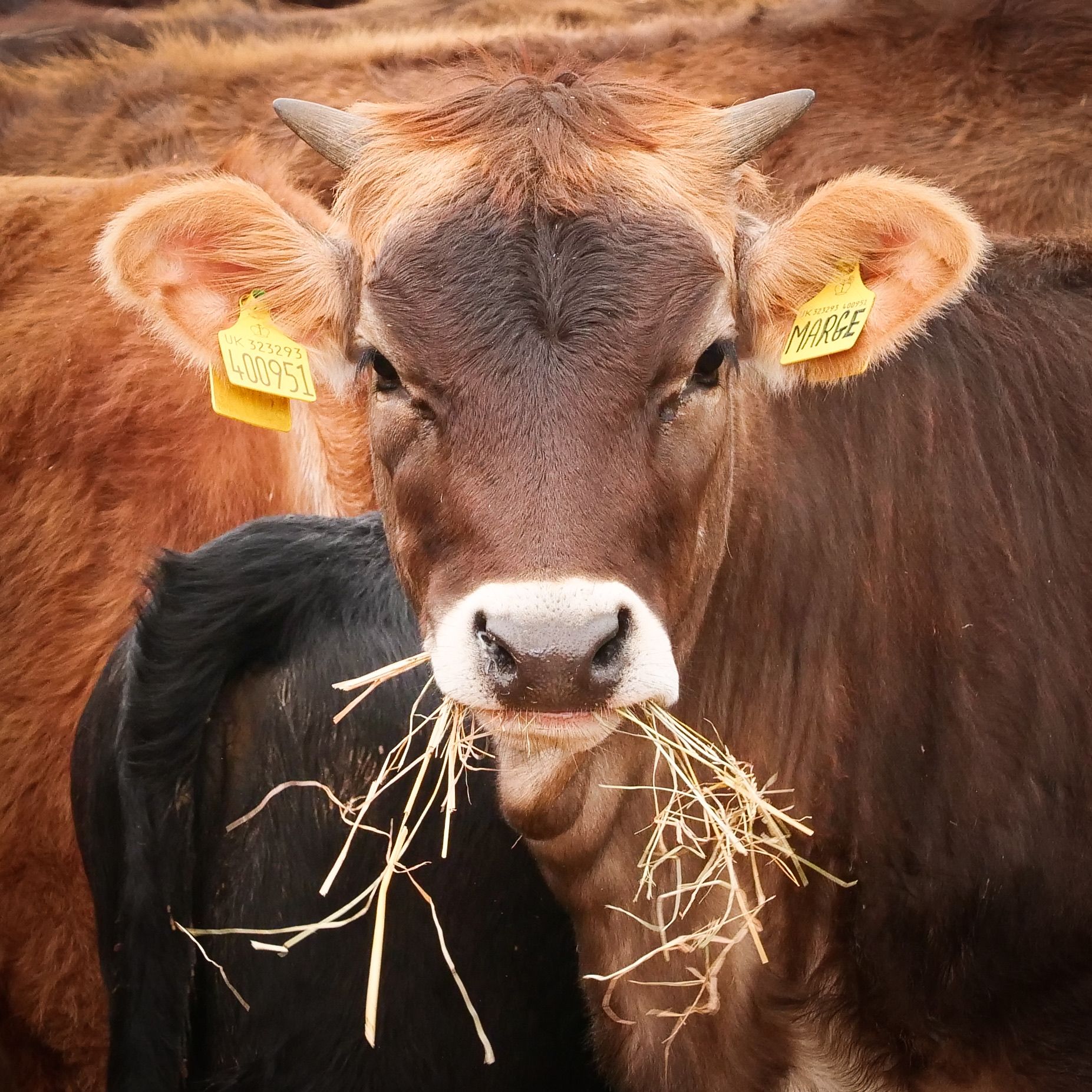
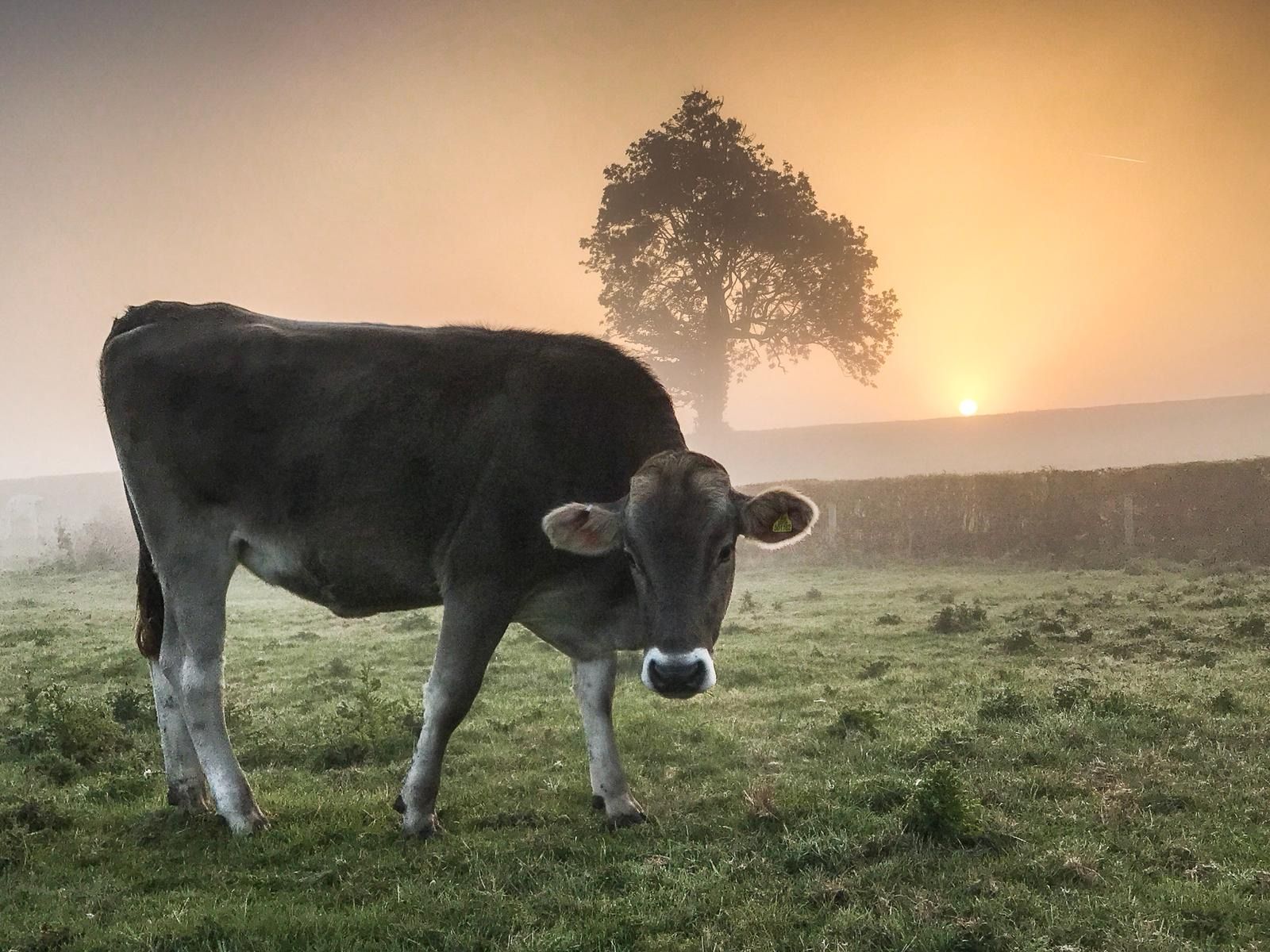
We started selling raw milk as a way to reach and teach the public about the benefits of raw milk. Education is a huge part of what we do and having an open gate policy (not literally) means we allow access to a world that many have no opportunity to see. We love meeting the customers and talking about the cows and their health.
Our biggest challenge is always going to be the paperwork side of running a raw milk dairy. Luckily Sarah is pretty good at those jobs. Our location isn’t great as we’re at the end of a single lane with quite a few houses. Most of our customers seek us out rather than being opportunistic passers-by. We also sell online and deliver via courier. We use social media to promote and inform our customers but the majority come via word of mouth or direct searches for raw milk. We sell via a vending machine but we also pre-bottle for some customers that travel a long way to buy from us.
We surveyed our customers to find out their reasons for coming to us. The overwhelming reason was health and primarily gut health as well as skin issues and asthma. That’s where we differ from pasteurised milk and why we can command a greater price. Raw milk is medicine to our customers and the perceived value is therefore much higher too.
Jargon-busters
Flying herd
a dairy herd kept only for milk production, all calves being sold and all new animals being brought in from other sources
Closed herd
a herd where the animals are all bred on the farm with none being brought in from other farms. Closed herds help reduce spread of diseases between farms.
SCC (Somatic Cell Count)
SCC is a milk test performed in a laboratory. The majority of somatic cells in milk are leukocytes (white blood cells), so a high count can indicate an immune response to an infection.
Bactoscan
another milk test that measures total individual bacteria in milk and gives an indication of the hygiene involved in producing it.
Resources
RMPA Chair Jonny Crickmore of Fen Farm Dairy demonstrates the fundamentals of best practice in producing raw milk
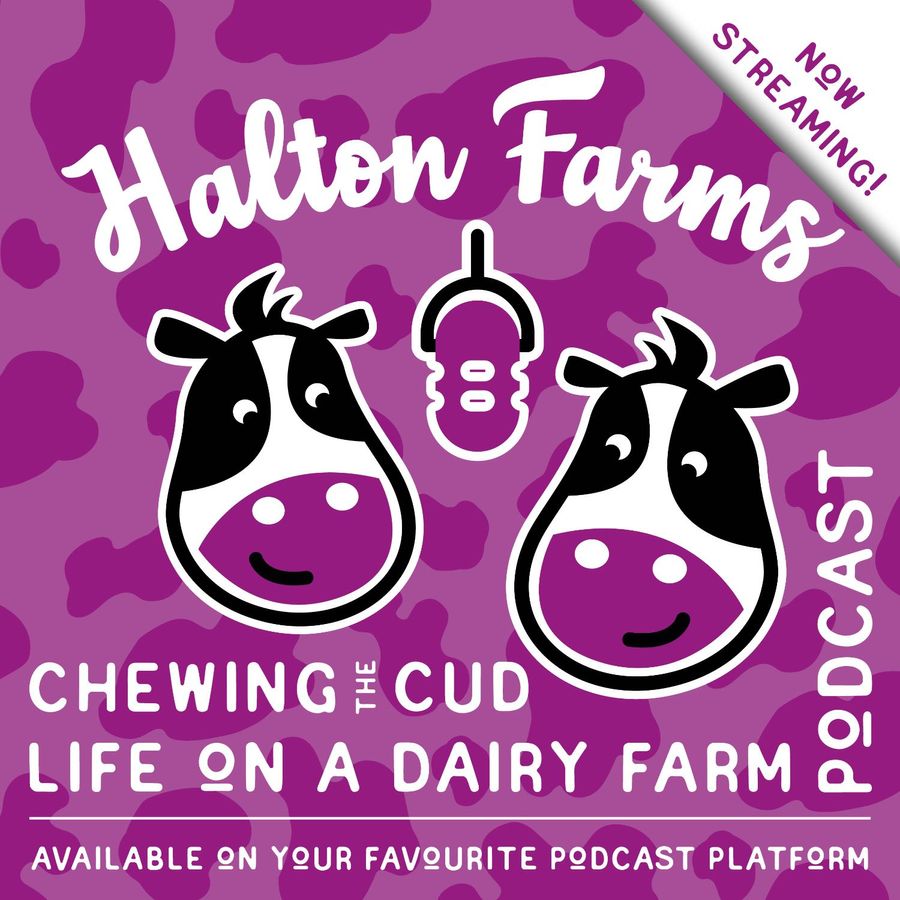
RMPA Member Halton Farms have recently started their own podcast 'Chewing the Cud' - tune in for a deep insight into the workings of the farm and the day-to-day of dairy farming. Find it on all major podcast platforms.
Upcoming Events
2nd December: Christmas cheese tasting and shopping day at West Middlewick Farm in Tiverton, Devon.
7th & 14th December: Late night opening at Buffalicious with product tastings.
10th December: Dora's Dairy are attending Winkworth Farm Christmas Market in Malmesbury
RMPA wants to do more to improve access to high quality raw milk and protect its future. We are run mostly by farmers in our 'free time' (haha!) and funded entirely by producers and supporters of raw milk in the UK. Can you help us expand our activities?

